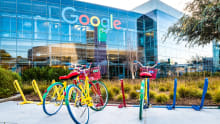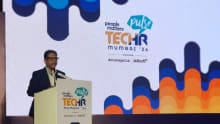HR needs to be empathetic during transformation: Prasad Menon

Prasad Menon is Senior Vice President - HR at Cleartrip. Over the course of his career, he has worked with organizations like Flipkart and McAfee. In an exclusive conversation with People Matters, he talks about the role of an HR professional in this ever-changing world, digital transformation, and technologies like AI and automation.
How similar or different have been your roles at Flipkart and Cleartrip?
The first commonality between the companies is that they both are in the e-commerce space. The second commonality is that both Flipkart and Cleartrip are technology companies rather than just tech-enabled domain operators. Anything that we do, technology is at the core of the organization.
But I think the similarity between these two organizations also ends there. Flipkart is a rapid growth audacious startup. The challenges were around how do you counter dilution as you scale, how systems, processes, and methods can build out to match and support the agility the organization required. On the other hand, Cleartrip is a very different organization. When e-commerce industry in India really kicked-off, Cleartrip was already a well-established in the online travel sector
The role at Cleartrip is transformational in nature. In the decade we journeyed, we cherish the fact that 33% of people have spent more than five years in the company. We believe that the problem statements in travel are probably just 25% solved. Our road ahead is to harness these levers and transform into a strongly differentiated business pivoted on product and customer experience.
What is the roadmap for Cleartrip for the future?
Cleartrip today is in a defining point in its journey and growth trajectory. The online travel market today has become transactional in nature and continues to witness discounting as the primary means of customer acquisition. Cleartrip’s mission is to create true customer differentiation by creating value, pivot from a single to a multi-market model, double the impact and accelerate growth, but with a continued focus on the clear path to profitability that we have been maintaining all along.
How do you approach technology at Cleartrip and how are you upskilling employees?
Fundamentally when we say we are a tech-driven organization, it means we think about technology as a means to how we approach anything, including people development which is an ongoing process at Cleartrip. We have many domain experts in-house from various fields who come together to bring the new hires up to speed with various technologies that are powering Cleartrip. Even our Leadership team is consciously made of people who understand technology well enough to let it play its role in advancing the organization at the desired speed.
Culture is often said to be the biggest barrier to adopting technology and that that’s where we place our efforts. Our values like fail fast, be restless; be curious, question status quo and push the envelope all come into play to create an agile organization that embraces technology and advancement at an optimal pace. Our leaders ensure the flow of proactive communication is maintained to let this culture flow and evolve.
At a broad level, we are embracing technology in a way so as to solve problems that an individual can come across in his daily routine and equip with information so that the person can focus on accomplishing what matters. For instance, our recent upskilling programs on cybersecurity was done using an e-learning and instant online assessment methodology. Given that we are based out of different locations video conferencing comes handy in helping mentors meet their team members especially those who are deployed on on-the-job training programs and channel them for effective performance and optimal nurturing. Our CTTop 10 program not only identifies the cream talent in the organization but sees these Cleartrippers involve themselves in solving organization-wide problems and thereby evolve strategic and macro-level perspectives and grow beyond their role.
How do you use data and technology at Cleartrip?
We have a state-of-the-art HRIS system to help us manage the talent lifecycle. This is mobile-enabled and we are continually focused on automation to self-serve, make data and services on demand and improve productivity. This is base level hygiene. On top of it we have layered, different things including an employee NPS (eNPS). We measure the eNPS on a quarterly basis and are able to have insights, not just at an organizational level, but also as subset functions different regions like the Middle East, or different support functions. Have a polarized data insights are critical to meaningful actionable.
We have also made our AI chat-bot system and are launching it shortly. While the conventional systems are those where you push out like a survey, the AI chat system helps us do many other things. We are a complex organization. We are spread across geographies, places, and generations of people. We have technology org, customer org, and we are expanding internationally. The AI chatbot helps determine the conversations which matter in the organization. It allows the business leaders to have meaningful conversations with various segments within the organization. Plus, our internal system is architecturally designed for HR metrics we want to measure.
What is that HR should be doing in order to help create a digital organization?
The role of HR is clearly shifting from keepers of resources and mood in the organization to partnering through analytically driven talent insights. HR has a catalytic role to play by fundamentally elevating the level of awareness digital transformation in the organization in a pro-active manner to help people traverse the value chain. A digital strategy requires a digital culture in the organization.
Adopt efficiency and productivity as the base foundation by leveraging Industry 4.0 means like AI, analytics, deep-data and self-serve platforms. HR will have to wrench away from day-to-day operational HR to a smarter data-driven, insight-oriented analytical partner role.
Tell us about one way through which HR can enable digital transformation in the organization.
One of the biggest barriers to change and transformation can be culture itself. The pointed behaviors that manifest as impediments to change are the fear of taking risks, or an organization operating in silos that cannot come together to craft and problem solve for a single view of your customer.
So while structures delineate the broad decision-making framework, it is very important to create a bottom-up micro-ecosystem of people who can come together and give their ideas and solve problems. This micro-ecosystem can constitute those people who are creators, makers, executors, financers. They can be from within the organization or from outside of your organization. But they are all going to come and united for a purpose. At Cleartrip we created IGNITE as a framework for doing just this, where a group of people from diverse walks and expertise come together to problem-solve for key org priorities. HR has to play the role of an enabler and coordinator in this process.
How does HR allay the apprehension that leaders have when it comes to adoption of HR technology in the workplace?
What I found interesting is how unprepared we are today when it comes to digital transformation. This is a huge opportunity, and also responsibility for the HR to play a central role. Our evolution was enabled through technology. In the future, technology will solve and greatly enhance social, health and economic quality of life. Resistance to change is a result of anxiety and ambiguity about what to expect. The one thing that HR has to do is to create awareness. Once you create the awareness, then people will also gain visibility of the roadmap. The next stage that HR has to focus on, is creating a blueprint for skill management. What are we witnessing in terms of technology evolution, and where do we as businesses need to take the opportunity? Skill building at every level to adopt new processes smoothly is key in ensuring digitization sees necessary adoption organization-wide.
What are your thoughts on newer technologies like AI and automation and their impact?
Technology has been the most emphatic proponent of progress and leads to a world of abundance. These technologies will leverage deep analytics to provide fresh insights, with predictive talent retention and engagement opportunities enabling HR to drive strategic partnership more consistently. Automation will propel productivity to new heights as also improve the employee experience.
Two things to keep watch is that while there could be hundreds of insights and data cuts that will be made available, so rather than besiege ourselves it is important to connect the dots with intuitiveness, derive key priorities and keep focus. It’s really not about the technology being used but rather how it’s being used to align with your strategy and core benefit of your customers.
Secondly, there are cause and effect issues that this rapid hyper change will bring impacting process jobs and what was repeated. Technology will be an ally as long as we remind ourselves to adopt a model that keeps people before profit.
What are the latest trends in the workforce that you have noticed?
People are actively looking at roles that can add value to them as professionals The pace at which the Cleartrip is transforming, it is important to have an environment of experts. We need to look at everything with a fresh pair of eyes- the realization that diversity is no longer just about gender or Gen-X, Y, millennials. It’s also about digital natives who have grown up with this new technology and digital migrants who have adopted. The whole concept of work for obligation and work for employment contract is breaking down. Over the last 12-18 months, we at Cleartrip have brought experts from the industry to bring changes within the organization. Bring them together and once the purpose is met, they go back to their worlds. It is very important to take a lead and identify – what will really attract people today or tomorrow.
How do you view your role in this ever-changing world?
We are living in volatile and dynamic times. I believe that even in the near future, organizations will have problems of different complexities and there will be a need for teams to solve for them. The question is that as far as we are evolving the value chain, we also need to understand how human beings are also transforming in parallel. HR has a very emphatic role to play in this transformation. It’s time we rechristened HR to ‘Humane Reengineering’.
Any message that you would want to give to a young HR professional who is starting out?
Today’s young professionals are going to be living and operating in a world of abundance. They can look at the world for what it is. They can have a context of whatever they studied and are holding on to. What industry needs is their fresh perspective. The only message that I would give them is, ‘Where you feel conditioned by the education system and see what is, you should look for and think what it ought to be.’ Develop not just a well-educated mind, but more importantly a well-informed mind.











